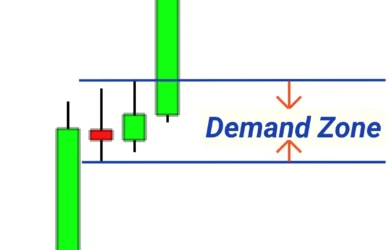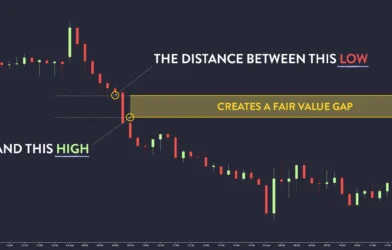If you are running a business then you should know that it comes with many responsibilities. You are owner of a café of warehouse you should know business rates. Business rates is a term which sounds alarming but is manageable and you need to focus on it as well. In this article we will help you understand with examples about how to work out business rates.
This guide is for everyone reading it or doing business. If you are business owner and working hard to minimize cost and maximize profit then read carefully. It may help you with your decision making. You may manage it better in future and understand how to be vigilant with laws and offers. If you wonder about how business rates are calculated then believe us you are not alone. Let us explain it to you.
What Are Business Rates?
Business rates are a type of tax charged on non-domestic properties like shops, offices, pubs, warehouses and factories. Consider it a council tax for commercial properties. Money goes to local councils and help funding essential public services like waste collection, education and road maintenance.
If you are using building as a whole of a part if it then you have to pay the taxes as mentioned by the state.
Why It Matters to Understand Them
Understanding about how to work out business rates is important for budgeting and planning. You do not want an unexpected bill disturbing your monthly sales and profits and you should know why you are getting these bills and how can you manage them or avoid them. You can search for discounts or reliefs by the state. As a small business owner you should know how to calculate the rates and what kind of help you can get from government.
Step by Step: How to Work Out Business Rates
1. Find Your Rateable Value
The first thing you need is to look up the rateable value of your property. This is set by the Valuation Office Agency (VOA) in England and Wales or by the Scottish Assessors Association in Scotland. In Northern Ireland it is the Land & Property Services (LPS).
The rateable value is an estimate of your property’s annual rental value in the open market. Usually base on prices as of a specific valuation date like the current valuation in England is based on rental values as of April 2021.
To find your rateable value:
- Visit the VOA website (or your country’s equivalent).
- Enter your postcode and select your property.
- You will see the current rateable value listed.
Example: A small hair salon may have a rateable value of £12,000.
2. Apply the Multiplier
Next you need to apply the business rates multiplier. This is a number set by the government and determines how much tax you pay of your rateable value.
There are usually two multipliers:
- Standard multiplier (for properties with a rateable value)
- Small business multiplier (for most small businesses)
For 2024/25 in England:
- Standard multiplier = 0.546
- Small business multiplier = 0.499
So if your hair salon’s rateable value is £12,000 and you qualify for the small business multiplier then the rough business rates would be:
£12,000 x 0.499 = £5,988 per year
This is before any reliefs or exemptions are applied.
3. Check for Business Rates Relief
Many small businesses qualify for relief which means that you may pay less or even nothing.
Some common relief schemes are:
- Small Business Rate Relief (SBRR): If your property’s rateable value is under £15,000, you may get up to 100% relief.
- Rural Rate Relief: For businesses in rural areas with a population below 3,000.
- Charitable Rate Relief: If you are a registered charity.
- Enterprise Zones and Local Discounts: Some councils offer discretionary reliefs or extra support to businesses in local areas.
Using hair salon example, if its rateable value is £12,000 then it might qualify for 100% small business rate relief which means nothing to pay.
4. Adjust for Changes
Business rates may change when:
- You expand or move to a new property.
- The VOA reassesses rateable values.
- Temporary changes like road works may affect.
If your rateable value is too high then you can challenge it by the VOA. Many businesses do this to reduce their bills.
Common Mistakes to Avoid
- Ignoring rateable value updates: These change by time and keep a track of it.
- Not checking for reliefs: A number of businesses miss the discounts they are entitled to.
- Not budgeting for increases: Build buffer into your financial planning.
- Overpaying without questioning it: Councils make mistakes too.
Talking to Real Business Owners
When speaking with small business owners for this article, a common issue came up and that was confusion.
“I thought business rates were just something you paid without question” said Lila, who owns a vintage boutique in Manchester. “It was not until a friend told me about reliefs that I realized I would been overpaying for years”
Stories like Lila and others we understood that why it is so important to take a moment and understand what business rates are and how they are calculated. It is about keeping your business sustainable.
How to Stay On Top of Business Rates
- Mark reassessment dates in your calendar.
- Sign up for updates from your local council or the VOA.
- Review your rateable value every year.
- Talk to an accountant or business advisor.
The UK government also offers a business rates calculator online, which is a great tool to estimate your potential bill. Just make sure you have your rateable value.
Conclusion
Business rates may seem like just another overhead, but when you understand how to work out business rates, they become less of a mystery and more of a manageable part of your financial planning.
As a business owner, you already handle a hundred things a day. Taking the time to understand this one thing could save you thousands or at least give you peace of mind.
Remember that it’s not about becoming a tax expert. It’s about asking the right questions, knowing where to look and realizing that support is available. You work hard to keep your business going. Your tax bill shouldn’t stand in the way of your success.
FAQs
1. How often do business rates change?
Business rates are usually reassessed every five years by the Valuation Office Agency (VOA). Adjustments can occur sooner if you make significant changes to the property.
2. Do I have to pay business rates if I work from home?
If you’re using part of your home for business purposes, you might need to pay the business rates. But if it’s just a home office, you won’t.
3. Can I appeal my business rates?
Yes. If you believe your rateable value is too high or incorrect, you can submit a challenge to the VOA. You’ll need to provide evidence and the process can take some time. Many businesses have successfully reduced their bills this way.
4. Is there any help for new businesses starting out?
New or small businesses may qualify for relief schemes, especially if their rateable value is below £15,000. It’s worth contacting your local council or checking the VOA site to see what support is available during your first year.





